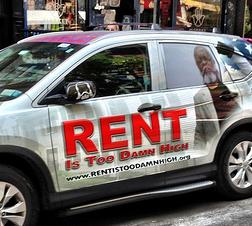
Melissa Kite had a piece in Thursday’s Guardian complaining about the escalating cost of London housing. She starts off well, observing that she can’t earn as much in a year as the increase in the value of her flat. “[W]hat does it say about our society when we can, in theory at least, make more money doing nothing than we can by the sweat of our brow?” Agreed, it’s a problem. So what does she recommend?
In New York, 45% of people live in rent-stabilised accommodation where landlords are limited to increasing rates by a certain percentage each year. This is not rent control – which accounts for only 1% of tenants – but rent with controlled increases, an important difference.
I will wait to hear from New Yorkers about how this has solved their housing problem. Going back to the Guardian article, Kite gets pretty close when she observes that “a British company is selling a flat-pack self-assembly ‘house in a box.’ But she doesn’t take the next step to ask: “If you buy one, where are you going to place it?” The answer, of course, will be that anyone who can afford only the flat-pack house will be unable to obtain a suitable site anywhere near London.
The problem isn’t house costs, it’s land costs. And land costs would be a lot lower if all land was subject to a stiff site value tax, because there could be little or no speculative premium. (To be clear, the cost of obtaining a site for your house, purchase financing plus tax, would be much less if landholders weren’t pricing sites based on their future hopes rather than current usefulness.) This point is readily made, for example here and here. It’s unfortunate that the writer of the Guardian article seems unfamiliar with the concept.